Unit 4 Day 3 – Magnetic Dipole Moment & Applications
advertisement
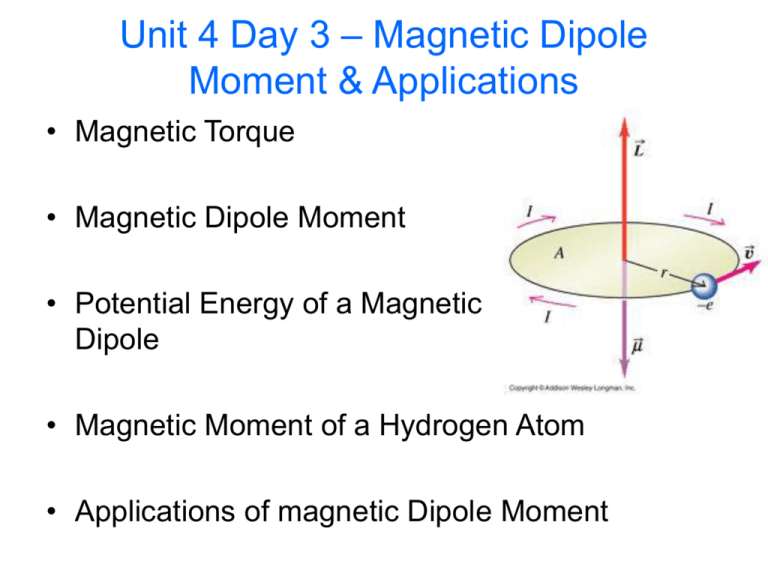
Unit 4 Day 3 – Magnetic Dipole Moment & Applications • Magnetic Torque • Magnetic Dipole Moment • Potential Energy of a Magnetic Dipole • Magnetic Moment of a Hydrogen Atom • Applications of magnetic Dipole Moment Magnetic Torque • When a loop of wire carrying a current is placed in a uniform magnetic field, the magnetic force will produce a torque on the loop, causing it to rotate • This is the principle behind motors, analog voltmeters, and etc. Magnetic Torque • The torque on the dipole is: net Fnet d Il B d b b CW IaB IaB 2 2 IabB IAB where A ab area of the coil ) • If the coil consists of N loops the current increases by N·I NIAB Magnetic Torque • If the coil makes an angle θ with the magnetic field, the magnetic force remains the same but the lever arm is reduced from ½b to ½bsinθ • Torque is always in the direction the net force of NIAB sin • Although this formula was derived for a rectangular coil, it is valid for any shape of flat coil Magnetic Dipole Moment • The quantity NIA in the torque formula is called the “magnetic dipole moment” NI A Where the direction of A is in the direction of μ • Therefore, in vector form, torque is expressed as: NI A B or uB Magnetic Dipole Potential Energy • Remember the torque on an electric dipole: p E where p is the electric dipole moment • The electric potential energy of the electric dipole is: U p E • Hence, the magnetic potential energy of a magnetic dipole is: U B Magnetic Moment of a Hydrogen Atom vt • The hydrogen atom consists of a (-) charged electron orbiting a (+) charged proton FC • The Coulombic force of attraction is the equivalent of the centripetal force keeping the electron in orbit Fcentripetal FCoulombic me vt2 e2 r 40 r 2 solving for vt vt e2 2.19 106 ms 40 me r 12 evt r 9.27 10 24 J T Applications of Magnetic Dipole Moment Electric Motors Loud Speaker Voltmeter (Galvanometer)
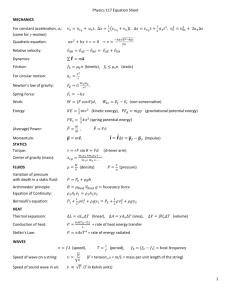
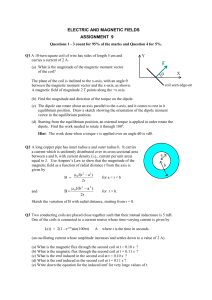
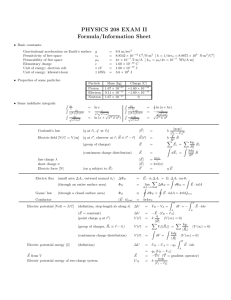
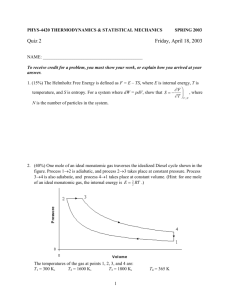
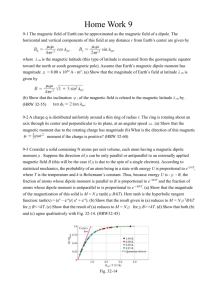
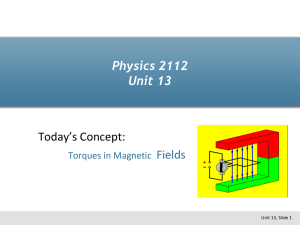
![[Answer Sheet] Theoretical Question 2](http://s3.studylib.net/store/data/007403021_1-89bc836a6d5cab10e5fd6b236172420d-300x300.png)